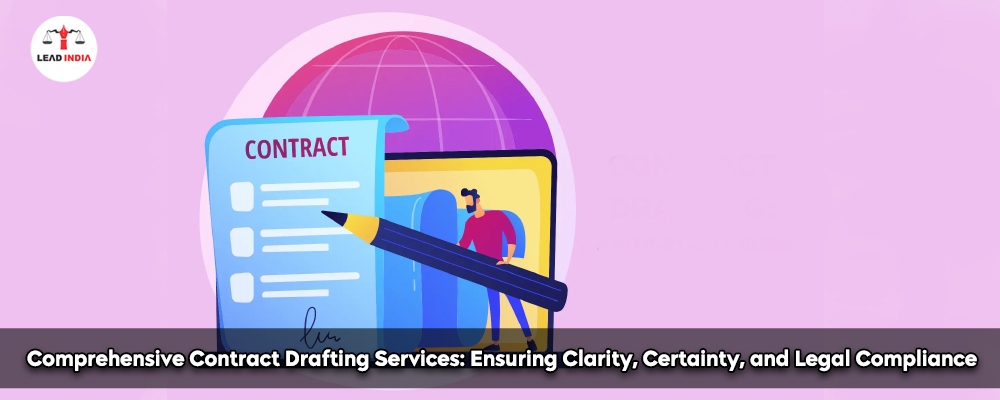Though the specifics of each contract will differ when drafting a contract, it must include a few key pieces of information to be valid and legally binding. First, every contract must include capable parties; someone who is mentally incapacitated or a minor cannot legally sign a contract. Then, the document must include: Offer Acceptance Consideration and valid purposes.
How to draft a contract
Drafting an effective contract is a multi-step process. Main steps include:
Determine whether all parties can participate
For a contract to be valid, all parties involved must be deemed capable. You cannot use coercion or duress to get someone to sign a contract. In most cases, parties must be over the age of 18 to enter into a contract. Contracting parties must always be in good mental health, including not being under the influence of alcohol or drugs when signing the contract.
Need A Legal Advice
The internet is not a lawyer and neither are you. Talk to a real lawyer about your legal issue

Determine consideration
A contract is only effective if the elements of consideration are clearly stated. Remember that consideration is the exchange of something, such as intellectual property, services, goods, or a promise to exchange for compensation. A contract cannot exist without consideration.
Set the terms of the contract
A contract’s terms should ensure that both parties get what they want from the agreement. You should negotiate the terms in good faith, without attempting to deceive. Contract terms are best expressed in writing rather than orally. Having a written record of a contract greatly simplifies its enforcement.
Decide whether you want to use a confidentiality clause
Confidentiality agreements are useful when your contract includes trade secrets or other sensitive information. A confidentiality clause ensures that sensitive information remains secure. Breaking the confidentiality agreement will be considered a breach of contract.
Include a dispute resolution clause
A dispute resolution clause describes how the parties will handle a breach of contract. This can include who is responsible for paying attorney fees and whether the parties will pursue arbitration or litigation. If the parties decide to pursue litigation, this clause should specify the legal jurisdiction in which the breach should be resolved. A dispute resolution clause may also state that negotiation or mediation is required before proceeding to arbitration.
Include a termination of contract clause
When drafting a contract, specify its length. Your contract should also specify any actions that either party can take to cause an early termination of the contract. In contracts involving ongoing services, you may want to include a provision allowing for prior notice to terminate without cause. Thirty days’ notice is typical. Some termination clauses also require negotiation, mediation, or arbitration before they can be enforced.
Ensure the contract complies with all applicable laws
You must ensure that your contract is established by all applicable laws. Otherwise, your contract will become unenforceable. You can specify which jurisdiction your contract should be interpreted in to make this clear. For example, if both parties live in different states, the jurisdiction clause will specify which jurisdiction has authority over the legal dispute.
Ensure the contract complies with industry and other specific requirements
Many contracts also include additional clauses that address specific business or personal situations.
Offer the contract for acceptance
Once you’ve drafted a contract, you must present it to the other party for consideration. The other party can accept the contract as is and proceed to the final step of signing it. If they do not accept the contract, they can submit a counteroffer.
Negotiate the contract terms
If the other party makes a counteroffer to your initial contract draft, you have the option of accepting it or responding with your counteroffer. These offer exchanges may continue until both parties have reached an agreement. Remember to review the contract after each counteroffer to ensure that you understand all changes made.
Sign the contract
Once both parties have agreed to the final offer, they must sign and date the document. The contract is only legally binding at that point. Both parties should obtain and keep a copy of the contract for their records.
Written contract requirements vary depending on the state in which you live or conduct business, and different types of contracts have different requirements. Working with an experienced lawyer for contract drafting services will help you ensure that your contract contains all of the clauses, terms, and details required by your jurisdiction, business industry, and more.
Lead India offers various legal services, including free legal advice and online information. You can talk to a lawyer and ask a legal question on various matters, including divorce, through our platform.





 Talk to a Lawyer
Talk to a Lawyer